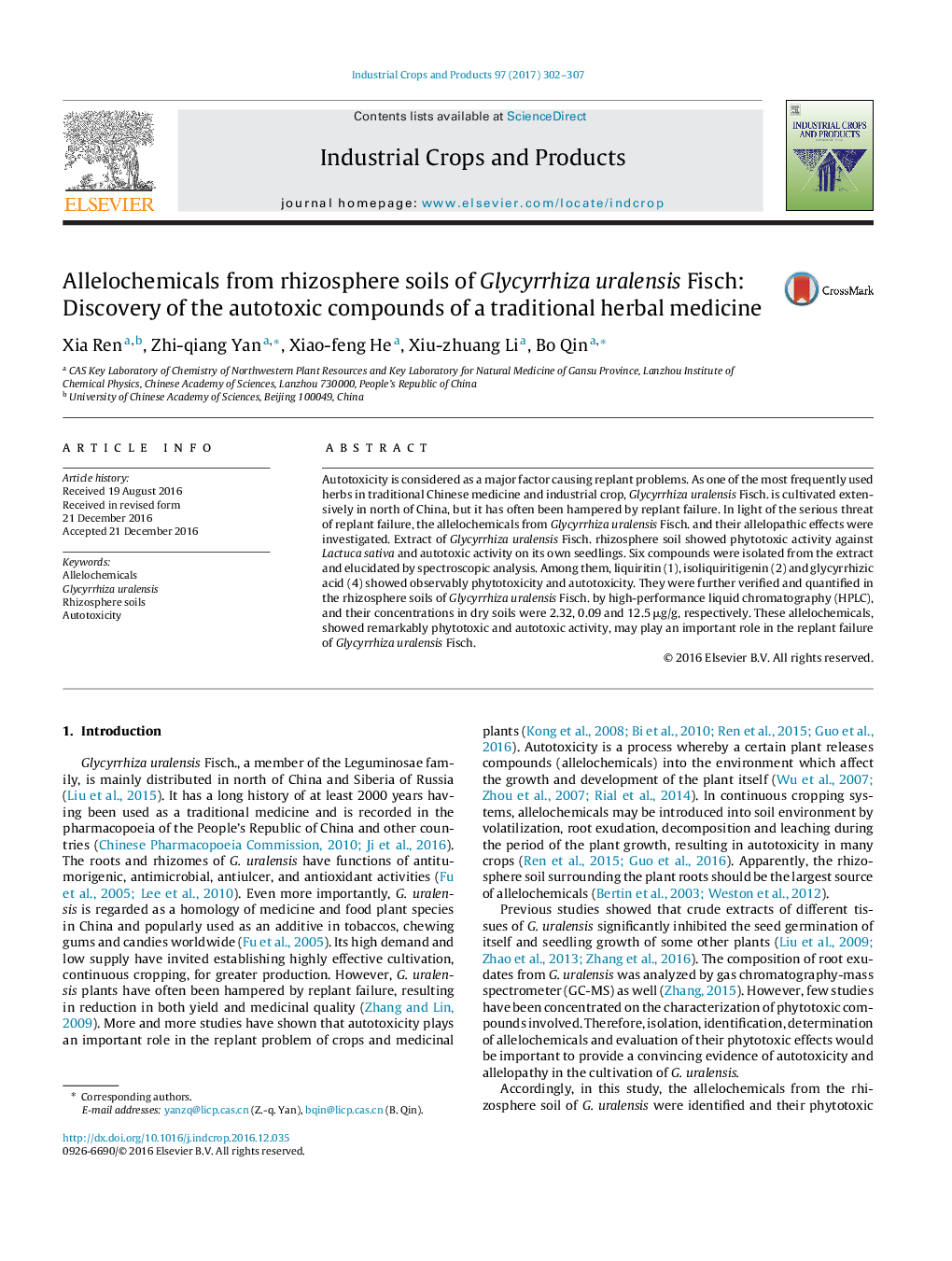| Article ID | Journal | Published Year | Pages | File Type |
|---|---|---|---|---|
| 5762237 | Industrial Crops and Products | 2017 | 6 Pages |
Abstract
Autotoxicity is considered as a major factor causing replant problems. As one of the most frequently used herbs in traditional Chinese medicine and industrial crop, Glycyrrhiza uralensis Fisch. is cultivated extensively in north of China, but it has often been hampered by replant failure. In light of the serious threat of replant failure, the allelochemicals from Glycyrrhiza uralensis Fisch. and their allelopathic effects were investigated. Extract of Glycyrrhiza uralensis Fisch. rhizosphere soil showed phytotoxic activity against Lactuca sativa and autotoxic activity on its own seedlings. Six compounds were isolated from the extract and elucidated by spectroscopic analysis. Among them, liquiritin (1), isoliquiritigenin (2) and glycyrrhizic acid (4) showed observably phytotoxicity and autotoxicity. They were further verified and quantified in the rhizosphere soils of Glycyrrhiza uralensis Fisch. by high-performance liquid chromatography (HPLC), and their concentrations in dry soils were 2.32, 0.09 and 12.5 μg/g, respectively. These allelochemicals, showed remarkably phytotoxic and autotoxic activity, may play an important role in the replant failure of Glycyrrhiza uralensis Fisch.
Related Topics
Life Sciences
Agricultural and Biological Sciences
Agronomy and Crop Science
Authors
Xia Ren, Zhi-qiang Yan, Xiao-feng He, Xiu-zhuang Li, Bo Qin,
